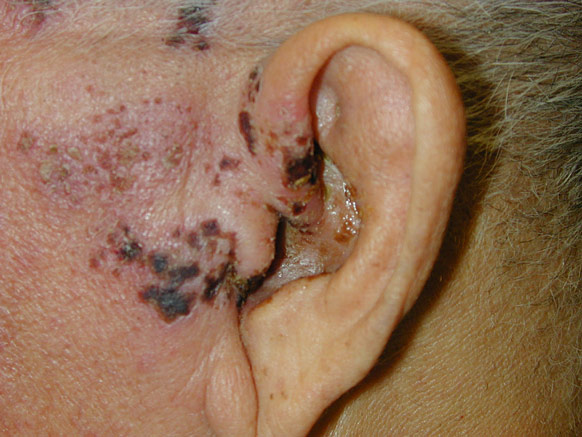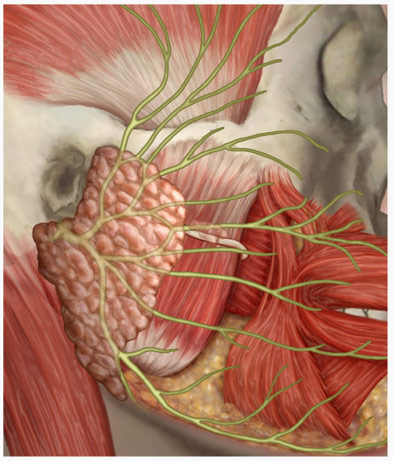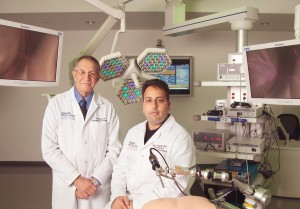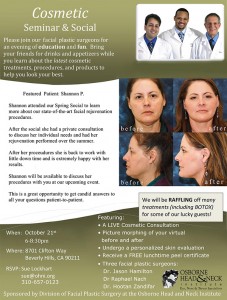- Shingles and Facial Nerve Damage - May 1, 2014
- Tattoo Removal - October 23, 2013
- Folliculitis: Frequently Asked Questions - April 12, 2011
- Adenoids: Frequently Asked Questions - April 12, 2011
- Serum Injection - September 17, 2010
- Treatment of Acne and Rosacea - September 10, 2010
Herpes Zoster Oticus (HZ oticus) is a form of shingles that is restricted to the area of the ear and its surroundings. Shingles and Herpes Zoster Oticus are a reactivation of the Varicella-Zoster Virus, also known as the chicken pox virus.

How does someone become infected with HZ Oticus?
After an initial chicken pox infection, typically during childhood, the virus will remain dormant within the nerve centers of the body. In normal situations, the body’s immune system keeps the virus at bay and the patient symptom free. Occasionally, when the immune system has been weakened, the virus will emerge and cause a painful chicken pox like rash. The rash is typically confined to a band like area or strip of skin. When shingles occurs in nerves associated with the ear, it is called herpes zoster oticus and can lead to hearing loss and loss of facial muscle control.
Who is at risk for Herpes Zoster Oticus?
Herpes Zoster Oticus can potentially affect anyone that has had a previous chicken pox (varicella-zoster) infection. Because the immune system is able to suppress shingles infections (including HZ oticus) those with weakened immune systems are more likely to develop HZ oticus. The immune system can typically be weakened by situations including: chemotherapy, radiation therapy, cancer, autoimmune disorders, stress, and chronic illness. In addition, because the efficacy of the immune system decreases with age, HZ Oticus is disproportionally seen in older age groups vs. their younger counterparts.
What are the symptoms of HZ Oticus?
Herpes Zoster Oticus typically presents with an itchy rash inside and/or near the outside of the ear canal that is characterized by several small fluid filled bumps (vesicles). As the diseases progresses, inflammation of underlying nerves can result in moderate to severe pain as well as changes in hearing, facial muscle control, and taste disturbances.
*When HZ Oticus involves symptoms of facial muscle control as well as taste sensation alteration, it is also known as Ramsay Hunt syndrome type II.
Is my hearing and or facial appearance at risk with a HZ oticus infection?
If not treated in a timely manner, HZ oticus can lead to potential nerve damage and subsequent dysfunction. Because of their close anatomical relationship, the nerves of hearing, facial sensation, and taste can all become simultaneously affected during an HZ oticus infection. Inflammation caused by the virus leads to compressive damage of the delicate nerves of the face and ear. Most patients who seek prompt treatment typically regain most if not all nerve function. Conversely, untreated patients may see long lasting or permanent dysfunction.

How is HZ Oticus treated?
HZ Oticus is typically treated with antiviral medications and corticosteroids to suppress viral activity and decrease inflammation. Prompt evaluation and treatment is recommended to avoid or decrease the complications associated with nerve damage such as severe pain, hearing loss, and facial distortion. In some cases pain medication is also prescribed to address pain due to neurological injury.
Who should treat my herpes zoster oticus infection?
All cases of suspected Herpes Zoster Oticus should be promptly evaluated and treated by a qualified otolaryngologist. These specialists have experience in recognizing this condition and initiating appropriate treatment to decrease the likelihood of complications and permanent injury.
To learn more about Dr. Raphael Nach or herpes zoster oticus, visit www.ohni.org.
Photo credit:
1Manolette Roque, MD, Ophthalmic Consultants Philippines Co, EYE REPUBLIC Ophthalmology Clinic via emedicine.com.



